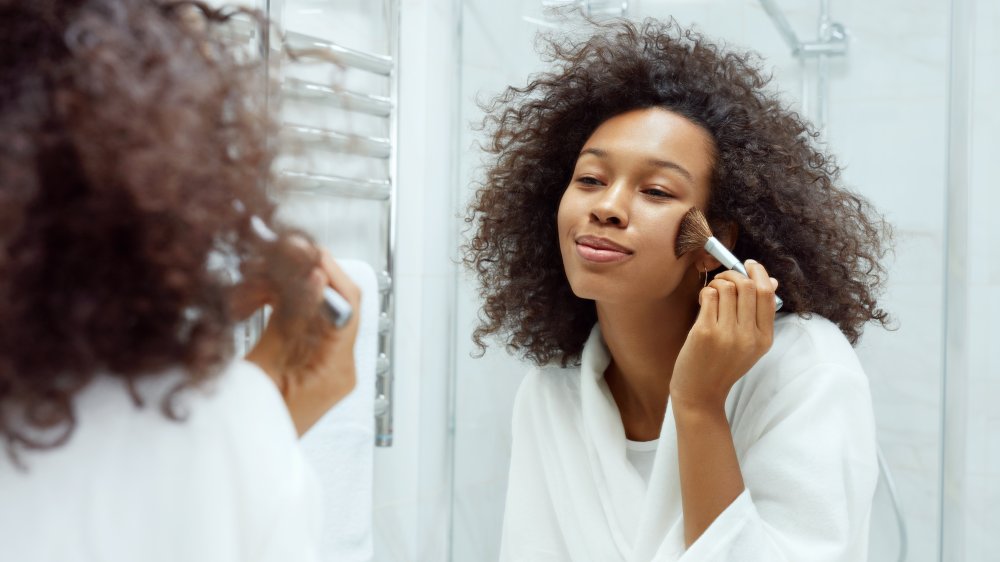Makeup Ingredients You Need To Avoid If You Have Acne-Prone Skin
What makeup ingredients should you avoid if you have acne-prone skin? Acne is a difficult beast to tackle. Not only are there surprising things that cause acne, but every person's skin is unique, and reacts differently to products and other external factors like stress and pollution. This being said, there are some general guidelines for people who are all-too-familiar with pimples. Aside from your usual skincare routine, the composition of your makeup can have a significant effect on the state of your complexion. To that end, there are several ingredients to watch out for.
To get to the bottom of things, Byrdie consulted several dermatologists, and found that acne-prone people should avoid putting silicones, oils, sodium chloride, fragrances, lanolin, petrochemicals, and dyes like D & C Red on their skin. Don't go tossing out all of your products just yet though — if you're finding that something works well and isn't worsening your condition, feel free to keep it around.
It's also worth noting that not all oils are bad for acne-prone skin. Dr. Rhonda Klein and Dr. Shari Sperling told Byrdie that it's types like coconut and avocado oil you should be avoiding on your skin. Oils are great in other forms though: think tea tree or jojoba, both of which have good reputations for helping combat zits.
What makeup ingredients are good for acne-prone skin?
Knowing what you shouldn't put on your skin begs the question: are even makeup products out there that won't clog your pores or exacerbate skin conditions? Luckily, many brands are a few steps ahead of you, and have formulated everything from foundation to blush with ingredients that can help, not hinder, your acne-prone skin. In a roundup of foundations for acne-prone skin, Prevention says that salicylic acid in your makeup can be beneficial, as well as powdered formulas.
You may have also seen the word "non-comedogenic" floating around on websites and slapped on product bottles — but it's really something of a marketing tactic, and doesn't mean much. According to Self, who interviewed a spokesperson for the FDA, "There are no federal definitions or FDA cosmetic regulations specific to the use of the term 'noncomedogenic' on labels for cosmetics."
Words like this can be misleading, so it's always best to read up on the ingredients you're using and choose what works best for your skin.

